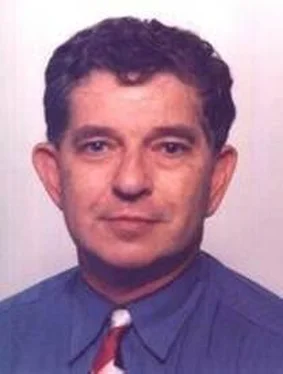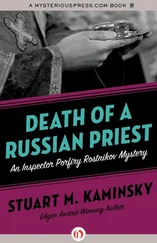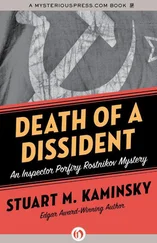When she opened the door, he handed her the shopping bag from Zabar's. It weighed her down and touched the floor.
"It's my birthday," he said. "How about a birthday party?"
He stepped in and closed the door behind him.
"I knew it was your birthday," she said, moving to the small kitchen and starting to lift out each of the goodies, pausing to savor the touch and smell of what was to come. "I made you a present."
Stevie was caught off guard, touched. It must have shown on his face.
"It's nothing much," Lilly said. "I'll give it to you after we eat."
He took off his coat and removed his shoes, placing the coat on the chair near the door and the shoes on a mat next to the chair.
"How about before we eat," he said, trying to remember the last time he had been given a birthday present. Not since he was a young boy. He had never been a "little" boy.
"Okay," Lilly said, removing the last package from the shopping bag.
She moved to the bedroom on the left, went in, and came back seconds later with a small package awkwardly wrapped in wrinkled red paper with a pink ribbon. She placed the small package in his huge hand.
"Open it," she said.
He did, carefully, not tearing paper or ribbon. It was a small, pocket-sized animal. Lilly had made it from clay or something and painted it white.
"It's a dog," she said. "I was going to make a horse but it was too hard. You like it?"
"Yes," he said, putting the dog on the table.
It wobbled but didn't fall.
"Can I name him?" Lilly asked.
"Sure."
"Rolf, like the dog on Sesame Street."
"Rolf," he said. "Sounds like a bark."
"I think it's supposed to."
"So," he said. "Should we eat?"
Lilly got plates, knives, forks, paper towels, and glasses.
"Did those people find you?" she, asked unwrapping a package of sausage.
"People?" Stevie asked.
"A man and a woman, when Mom left for work."
"Who did they say they were?" he asked as Lilly carefully placed a slice of sausage on a roll she cut in half.
"I think they were the police," she said, handing him the sandwich she had made and then the card her mother had given her before she left.
Stevie was silent. He looked at the CSI card with Mac Taylor's name and number on it and handed it back to the girl. Then he took the sandwich and looked at it as if it were an unfamiliar object.
"I think one of them is in your apartment waiting for you," she said, working on her own sandwich.
Stevie pocketed the clay dog and turned in his chair to look at the door as if he could, with enough effort, see through it into his own apartment.
Stevie had to think. It would take time. Thinking was not one of his strong points. He took a large bite of the dry sandwich. The texture was dry, but the taste was satisfying, familiar.
* * *
Jacob Laudano was seriously starting to worry. It had all been too easy, and now he had a phone call telling him what to say if and when the police came looking for him.
Why the hell should the police be looking for him? Okay, so they had a reason to look for him, but he could get around that unless they were out to nail him. They didn't have evidence against him. They couldn't.
Jacob "The Jockey" Laudano stood four foot ten and weighed ninety-four pounds, five pounds more than his racing weight. Considering that the last time he had been on a horse was eight years ago, he had done a good job of keeping the weight off, putting food on the table, paying the rent for his one-bedroom East Side apartment, and having enough left over for clothes and drinks.
He didn't need money to get women, not like Big Stevie. Not many wanted to be crushed by Steve's bulk or look up and see Steve's face. Jake, on the other hand, held an appeal for some reason that was hard for him to understand, but which he accepted without question. He knew it had something to do with his size. He wasn't a bad looking guy, but the face that looked back at him in the morning mirror or the mirror at the back of Denny Kahn's Bar was no Tom Cruise. Jake was pale, nose a little sharp, eyes narrow. He was nearing fifty but could pass for younger. His size again.
He had never liked the horses except to bet, and that's what had gotten him into trouble. For awhile it had been good. He had bet on his own races and played all the tricks to see to it that the favorite didn't win. It was a little-appreciated skill, even less appreciated by the other jockeys who eventually turned him in.
Jake was through in the business by the time he was twenty-six, at which time he had put his agility and lack of regard for the law into the traditional family business, breaking and entering.
He had done fine at that for more then ten years and then, dumb luck, he was delving into the lower drawer of a dresser where people often hid something small and worth taking when the apartment door opened suddenly.
Dumb luck. Jake had gone for the window. The guy had beat him to it, blocked his way, and punched him in the chest harder than he had ever been punched before or than he would be while doing two years upstate.
The guy turned out to be a third baseman for the Mets. Dumb luck again.
Jake made contacts while on the inside, which led to connections when he got out, connections that got him work because he was still damned good at getting in and out of places the big, fat, and often old people who hired him could not fit into. The first time he had been offered a hit for ten thousand he had said, "Sure."
He had killed three others since then, all for the standard fee of $10,000. Jake the Jockey had a reputation. He didn't try to hold out for a bigger payoff no matter who he was hired to kill.
Jake's preferred tool was a long, sharp knife to the neck while the mark was asleep.
He was straightening his tie in the mirror and pulling the knot just right. Someone had once called him a "natty dresser." He had looked it up and liked it.
The phone rang. Jake kept working on his tie as he came out of the bathroom and picked it up.
"Yeah," he said.
And then he listened.
"Went just fine," Jake said. "Like I told you. In, out. No questions… Yeah, they saw me, not my face… If he does, I will, but he won't come here… Okay, okay, I'll call."
The phone went dead. He put it back down and looked at it for a few seconds. Had something gone wrong?
* * *
It was dark in the elevator shaft, but Aiden had a large lamp flashlight on its highest setting sitting in a corner on a metal beam.
She wore gloves and had a package of evidence bags atop her kit next to the flashlight. There wasn't as much garbage as she had expected, but there was still enough to make the job formidable.
It was a challenge.
There were crumbling sheets from newspapers dating back to the 1950s. One of them held the word "Ike" in what was left of the headline. She plowed through envelopes, all old, none from or to anyone whose name she recognized. She found a Baby Ruth candy bar wrapper, an assortment of screws, thumb tacks, and other pieces of metal. She found two dead rats under an unidentifiable moist mess in one corner. One of the rats was long dead and mostly skeletal. The other was still damp and all too fragrant.
She rummaged for forty-five minutes, finishing her search with a dried out condom wrapped in aluminum foil. So much for a high-class Manhattan apartment building.
There was no bullet at the bottom of the shaft. She was as sure of that as the fact that she needed a shower.
She started to climb out of the shaft into the basement. With one knee on the concrete floor, she took a last look back, shining her flashlight into corners and up at the stopped elevator, which she'd turned off before coming down here. It was then that she saw it. The bullet, what was left of it, lay dark and leaden, on a metal structural beam. It hadn't fallen all the way to the floor of the shaft.
Читать дальше












